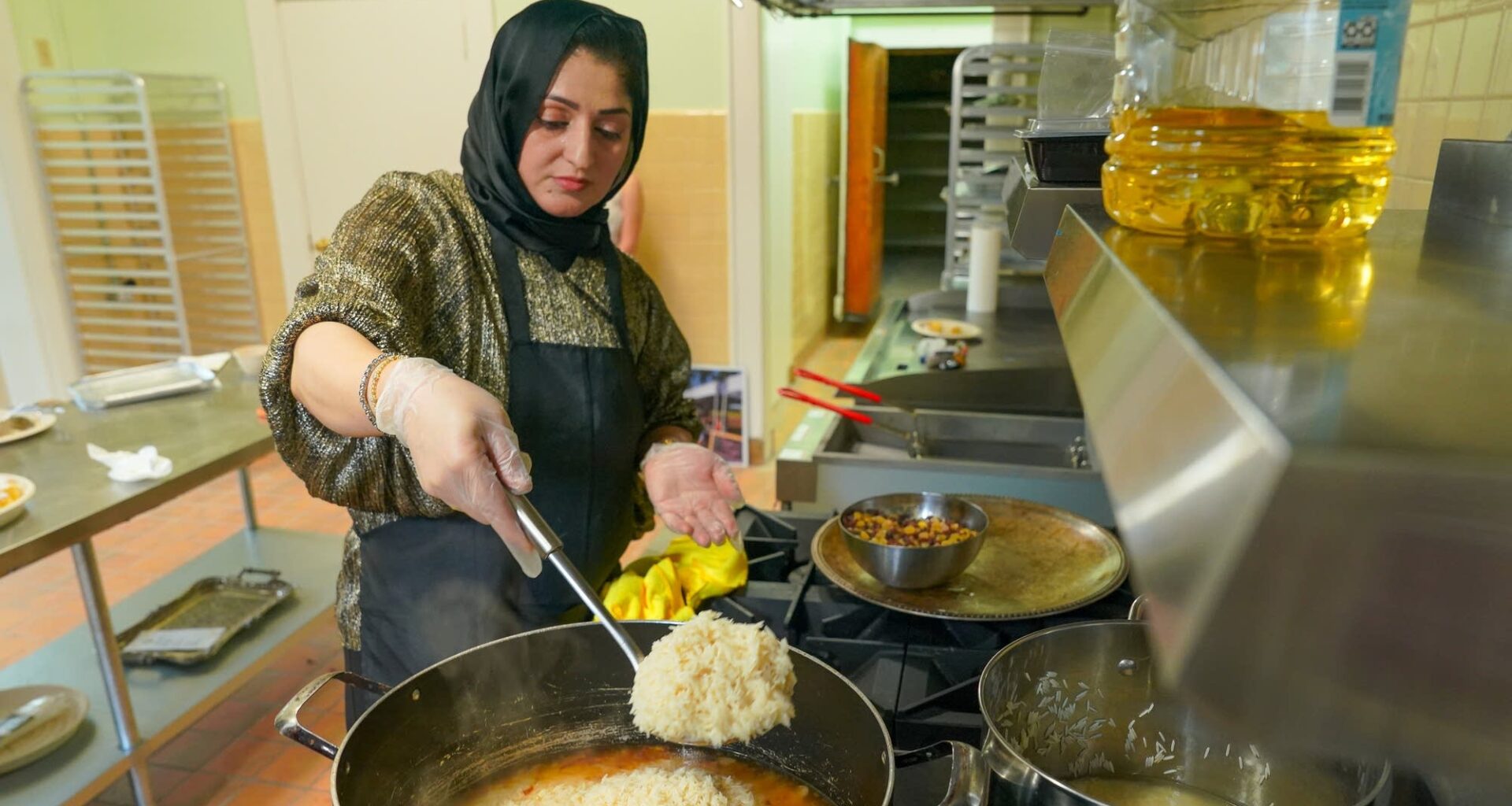Marmar Stewart walked through a newly renovated kitchen for an entrepreneurship program called Chef’s Club. The rented kitchen was used for community events but hadn’t been touched for more than 15 years.
“It was a dead kitchen, and we brought it back to life,” she said. “Actually, these women brought it back to life.”
These women are refugees in Atlanta, and the nonprofit Refugee Women’s Network helps them launch their own food businesses through Chef’s Club.
Since President Donald Trump took office again in January, refugee resettlement to the U.S. has largely stopped and funding has been cut. But the refugees who have been resettled here still need resources to rebuild their lives.
The nonprofit tackled this by finding ways to raise money to keep providing services for resettled people while also helping refugee women launch their own businesses.
One of the women, Breshna Alemi, ladles diced white onions into a large pot of hot oil. Alemi is a mom, a wife, and a refugee from Afghanistan. She resettled in Atlanta about a year ago.
The kitchen fills with fragrance as she stirs the onion and adds salt.
She’s preparing Afghan food for a large catering order. Every dollar these women earn, they keep.
“It’s for the first time they’re making a paycheck,” said Stewart, who leads the entrepreneurship program.
When refugee families are resettled to the U.S., often the husband finds work first. But this program helps give women independent skills.
Sushma Barakoti, the executive director of the nonprofit, says the refugee women came to her with the idea. They said, “We’ve cooked for big families every day. We can use this skill and earn money.”

Breshna Alemi plates baklava for a catering order in the Refugee Women’s Network’s commercial kitchen in Decatur, Georgia.
Matthew Pearson/WABE
Under the Trump Administration, refugee resettlement programs look a little different now. Barakoti says the Refugee Women’s Network has already lost at least $100,000 in federal funding for the 2026 fiscal year.
“We know that our budget is going to be (a) reduced budget, she said. “At the same time, we are looking at this as an opportunity.”
Chef’s Club creates that opportunity for both the nonprofit and the women. Stewart says refugee chefs now also volunteer to host cooking classes as fundraisers.
“Our Afghan cuisine is phenomenal because it’s not restaurant quality, it’s mother quality, grandmother quality,” she said.
Alemi seasoned the frying onions with bright spices. She’s preparing Qabeli rice, a savory Afghan pilaf mixed with caramelized, julienned carrots and plump, juicy raisins. It’ll get served alongside a salad, a saucy chicken, and a savory eggplant dish called Borani.
“When I see people love my food, it makes me not tired at all anymore,” Alemi said.
Clients are not tired either. The catering business is steady, and mostly through word of mouth.
Related Topics
